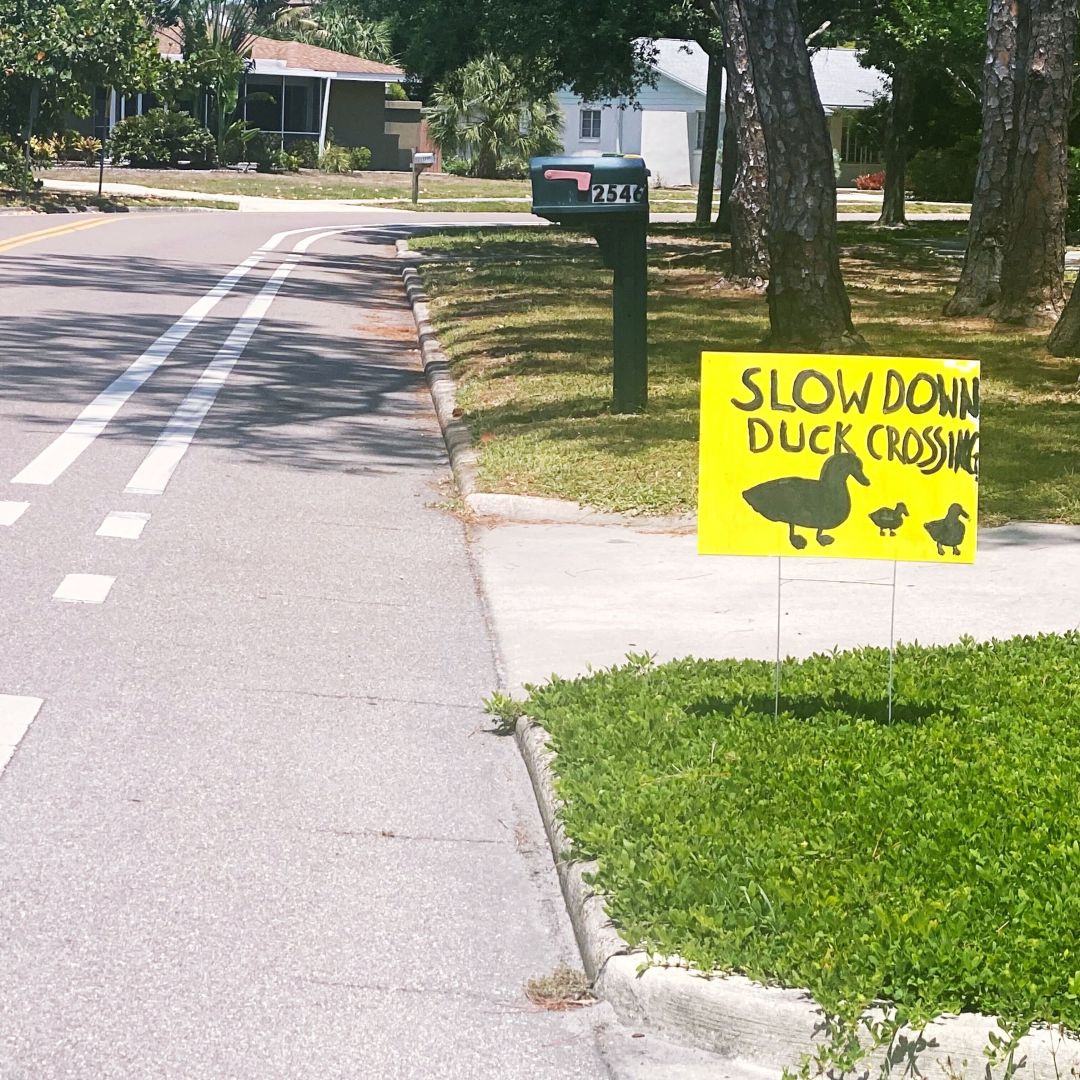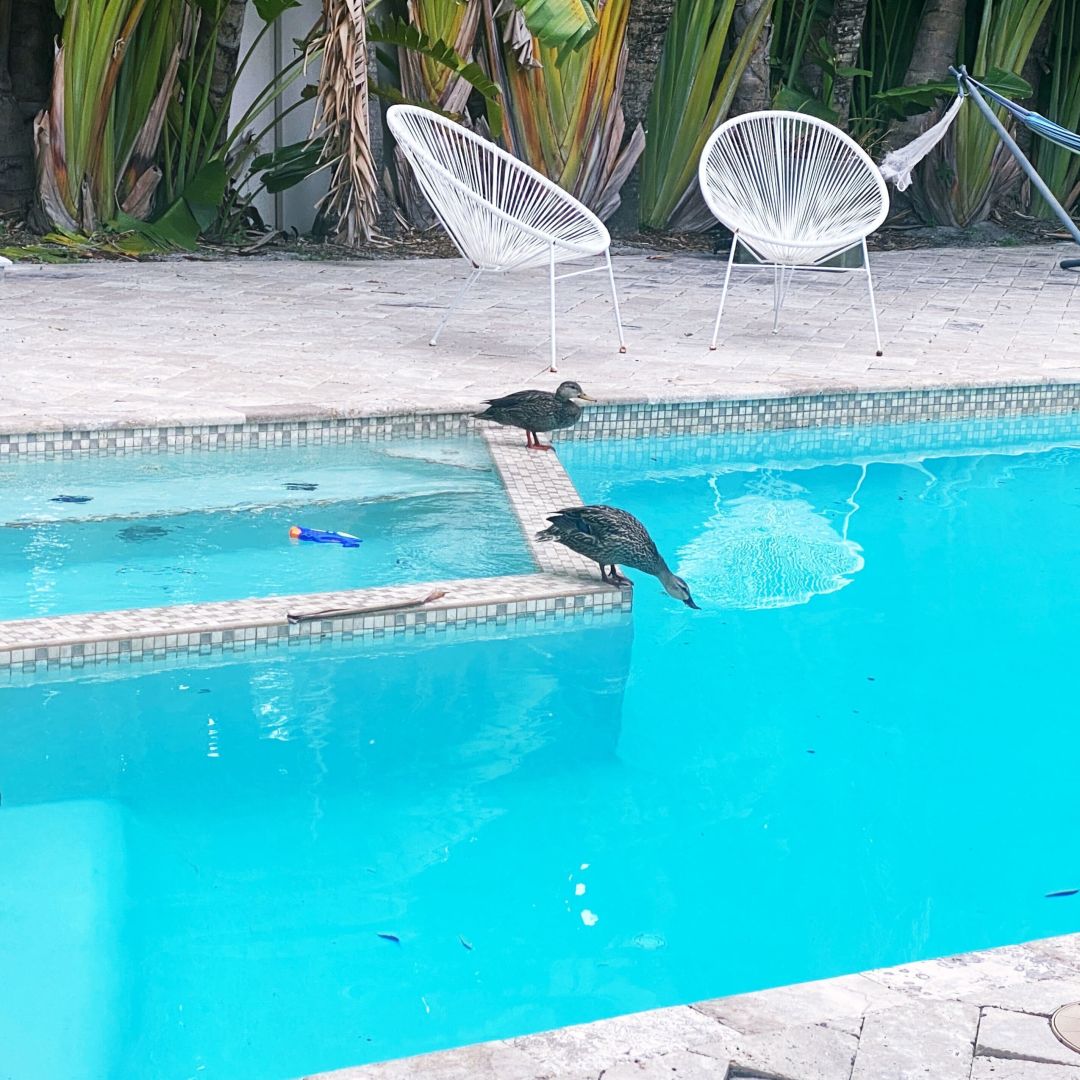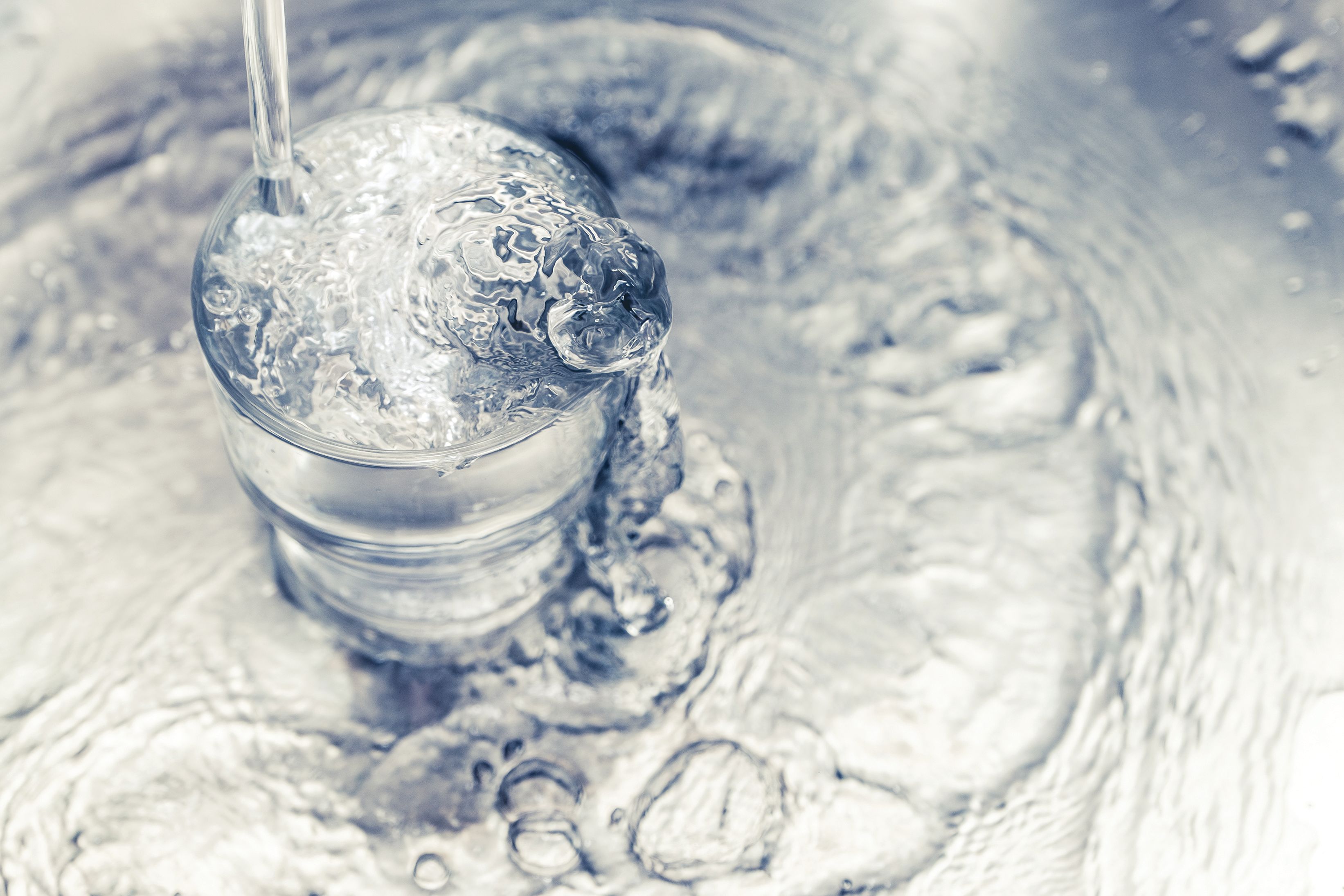If You See Birds or Other Wildlife in Your Pool, Let Them Use It

Image: Kim Doleatto
Unlike the new statewide legislation that bars Florida cities or counties from creating protections for workers who labor outdoors, our backyards are still a place where we can get relief from the heat and drought.
The latest U.S. drought monitor data shows Sarasota County has moved into the "moderate drought" category, which is second only to "abnormally dry"—the driest category. However, little more than a quarter of Manatee County is in the abnormally dry category, and the rest is in the moderate drought category.
So it's no wonder all manner of wildlife are seeking relief—like the ducks pictured above, who visit my backyard daily. But is my chlorinated pool water bad for them? Should I shoo them away? Or welcome them in peace?
My next-door neighbors helped me make the decision: they took it upon themselves to help with this sign on Ringling Boulevard.

Image: Kim Doleatto
Plus, Gail Straight of Wildlife Inc., a nonprofit dedicated to saving local wildlife, encourages being a good host. Straight has been caring for rabbits, possums, raccoons, birds and so much more since 1988.

Image: Kim Doleatto
“We drink chlorinated water half the time, too,” she says. "Ducks are in pools because the pond they're accustomed to swimming in is probably very low. [The chlorine] is not going to harm them. They’re pretty smart.” In fact, she urges the public to help them in situations like these.
If you don’t have a pool or are still worried about the chlorine, she recommends putting out bath dishes of water for local widlife. It can be in Tupperware or bowls–"it doesn't have to be fancy," Straight says.
Pro tip: place bowls of water between bushes, where hawks and other flying predators won't see the animals drinking from them. Change the water out every couple of days—during dry stretches like this, it will evaporate fairly quickly. And yes, those with condos and balconies only can join in, too.
"It's really dry and hot, and they need to drink," Straight says. "Half of the animals we're seeing are dehydrated right now."
She adds that sometimes she's met with pushback on the topic, like concerns over creating a mosquito habitat.
"As hot as it is, the water will empty quickly. I'm talking about a little dish or bird bath with shallow water," she says in response. "Clean it out almost daily so there aren't any mosquitoes in it."
And she's also heard people assume birds' gift of flight will allow them to find other sources of water during a drought.
"They can't seek water if there isn't any," Straight says. "Plus, many of our birds are nesters and have to stay close to their young. Not every bird can fly miles."
But what if they poop in my yard or on my balcony? Straight's response is unequivocal.
"People need to live outside for a while without water and see what it's like right now," she says. "The animals need our help. Water is the most important thing for them to survive the heat and dryness. They won't survive without it."
To learn more about how to make your backyard wildlife-friendly, click here.



